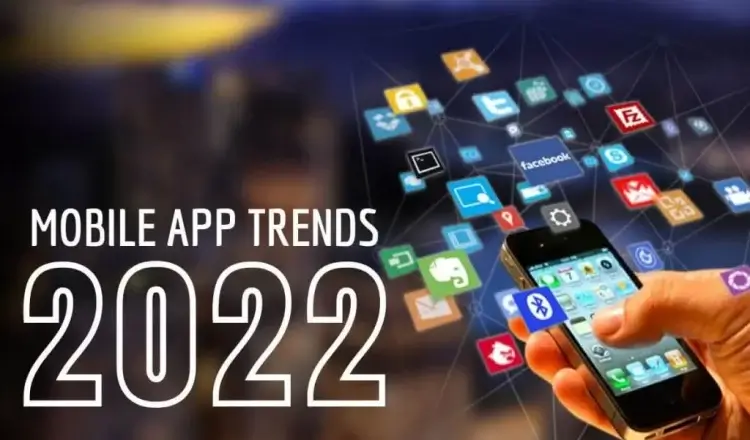In today’s modern world, nothing is untouched by smartphone sophistication. Anything that earns huge profits by the end of the month or year, is entitled to have a dedicated mobile app under its belt. Mobile applications help companies and clients interact with each other more efficiently. There are almost 6 billion smartphone users in the world, which means no one is using a traditional PC anymore. Thus, we can estimate how crucial a mobile app development company has become recently.
Smartphone apps are in demand more than ever. Today, there is no single industry that doesn’t have a mobile app. Businesses and brands alike use dedicated smartphone apps to increase their consumer response times, increase sales, and boost business prospects. Mobile applications have increased the value of brands due to their one-touch button policies. On-the-go services have become only possible through the means of smartphone applications.
In our times, a business-dedicated mobile app has become an absolute must. It helps them run standard customer services with more efficiency. Mobile apps have helped the brand increase reliability with faster services, easy accessibility, increased user engagement levels, and brilliant customer support. The increased mobile technologies have led to the innovation of different mobile-based platforms, which has increased smartphone thruputs. Some of the latest mobile application development trends are as follows:
Table of Contents
1. Machine Learning Apps Development
These mobile apps are the most trending. These applications include a virtual thought process in the program. It helps software databases learn human behaviors, emotions, and other sensory perceptions. Machine learning is mostly cross-platform based, with a flexible algorithm working in the back end.
Once machine-based intelligence gets acquainted with user responses, it creates an ideal personalized user experience. Some popular machine learning-based mobile applications include Social Media platforms, traffic alerts, mobile weather updates, virtual assistants, transportation, and commuting services. Do not forget to mention the most popular Google Translate platform; multiple language databases.
2. Artificial Intelligence (AI) Mobile Apps
After machine learning comes the craze of AI-based mobile applications. Major world digital companies like Google, Microsoft, and Apple use AI-based software to enhance their programming strategies and future foolproof planning(s). It has given birth to many mobile application development companies integrating smartphone apps with artificial intelligence.
This intelligent software has quick interaction protocols, an AI voice interface, predictive intelligent behaviors, and is distinctively human-responsive. Some popular mobile apps based on this platform’s preferences include Siri, Google Assistant, Cortana, Alexa, Socratic, and DataBot.
3. E-commerce Apps Development
Undeniably, business apps, also known as e-commerce apps, have become the hottest trend of the market. According to the Criteo survey, smartphone apps increase the total ratio of users completing the desired action instead of on traditional desktop PCs.
Moreover, mobile applications help the consumer connect with many products and services. Companies can hire designers to create a nice-looking catalog with all their in-house services. In due course, customer loyalty is increased with more brand awareness.
Furthermore, e-commerce mobile apps enhance mobility for buyers’ convenience, efficient A-to-Z functionalities, faster loading times, and cross-platform accessibility. Popular e-commerce mobile apps are available for Amazon, eBay, AliExpress, Groupon, H&M, Starbucks, and others.
4. Restaurant Management Mobile Applications
Mobile applications have increased efficiency for dine-in eateries as well. These days, restaurants have dedicated smartphone applications filled with several serviceable features. Food ordering has become easy; customers select their favorite dishes and desserts directly from their smartphones.
Furthermore, restaurant apps help faster table service rotations, offer on-time reservation bookings, read reviews, and make easy online payments. Nowadays, a mobile app development agency cannot be successful or trusted if its portfolio doesn’t contain a restaurant-based smartphone application. Some popular names include Foursquare, EAT24, Yelp, Zagat, OpenTable, DiningGrades, and Locat Eats.
5. Accelerated Mobile Pages (AMPs)
One of the biggest mobile app trends of 2022 will offer faster search results on mobile. AMPs are efficient, engaging, and have a smooth opening. Also, these offer a faster browsing experience to users with the help of highly transferrable HTML, JavaScript, and CSS coding languages.
The AMP technologies are integrated with other website tools in the backend that ensures instant page loading times. Other observable enhancements include low bounce rates, flexible browser modifications, improved SEO, and lightweight and mobile-friendly.
Google has also introduced its AMP project to compete against its main rival, Facebook Instant Articles. Websites with reach content like graphics, animation, and videos are ideal for AMP integrations. It helps them load up on multiple devices instantly without breaking the internet. A few other popular AMP-lified websites include Newegg, Eventbrite, 1800 Flowers, Myntra, Snapdeal, and Greenweez.
6. Cloud Storage Mobile Apps
Over the years, the demand for cloud-based apps has reached an all-time high. These virtual storage rooms contain user databases, software processes, and how user-to-machine interactions take place. Cloud technologies have become the basis of the mobile app since 2018, as they helped programmers collect vital information directly from the cloud servers. Besides, cloud technologies are universally operable on all mobile platforms like iOS, Android, and even Windows.
Cloud storage-based mobile apps offer easy access to personal files, office records, and other important information. All it takes is an internet connection to activate the cloud database. Cloud services require no installation setups; these are time-efficient and highly cost-effective. As well, cloud technologies are secured and help recover your data easily.
7. Instant ‘practicable’ Mobile Apps
Instant mobile applications or simply on-demands smartphone apps are applications for local services. These are specifically built to increase a company’s reach within their locality, but sometimes with a prospect to reach a nationwide audience. Human beings follow a traditional routine, where daily lives are connected with central prerequisites. Our life revolves around laundry, food, transport, travel, emergency services, consultancy, beauty products, and other lifestyle conveniences. By using on-demand apps, these things have come within reach of our fingertips.
Furthermore, instant apps provide direct communications with experts 24/7, available for assistance. Companies enjoy brand awareness, increased business credibility, and attract new customers.
Conclusion
The ever-evolving landscape of mobile app development has become an integral part of modern business strategies. With the proliferation of smartphones and their widespread adoption, businesses are harnessing the power of various trends in app development, including machine learning, artificial intelligence, e-commerce solutions, restaurant management, accelerated mobile pages, cloud storage, and on-demand services. As companies strive to enhance user experiences, streamline operations, and extend their reach, the dynamic world of mobile apps continues to shape how we interact, transact, and engage in today’s interconnected digital age.




